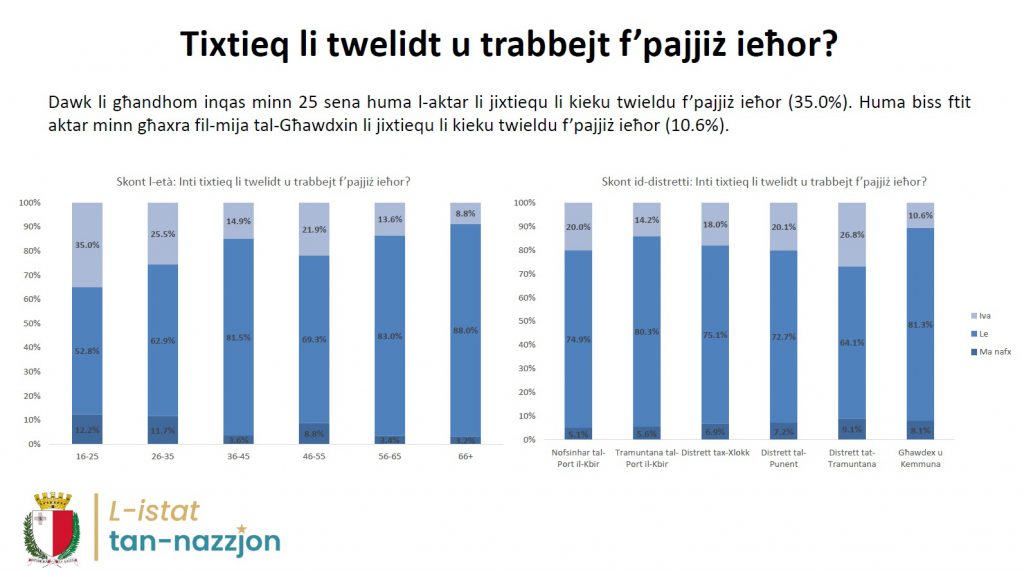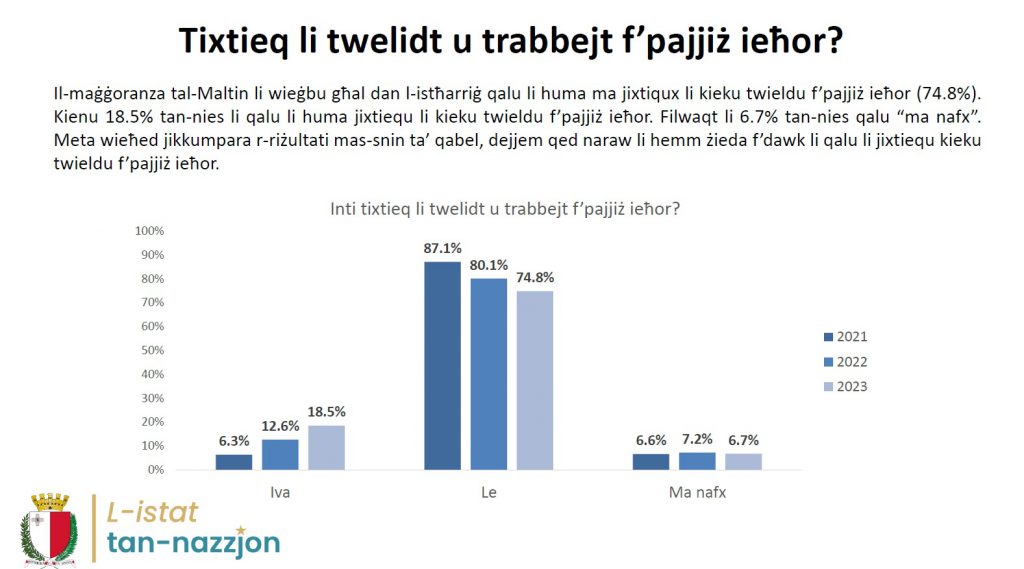A third of Maltese youths wish they were not born in Malta

One in every three Maltese youngsters aged between 16 and 25 wish they had been born in another country, an annual survey has concluded. This trend is further testament to the growing feeling among the upcoming generation that Malta offers limited opportunities. The survey was carried out by the Office of the President as part of the State of the Station of the Nation conference.
Though three quarters of the Maltese population are perfectly happy of having been born in Malta, the figure is significantly less than the respective rate for 2021 when it stood at 87.1%. On the other hand, those who wish to have been born in another country have trebled from 6.3% in 2021 to 18.5% this year. The rest of the population replied that they did not know.
A deeper analysis reveals that the largest cohort of those unhappy about their existence in Malta, are young people aged between 16 and 25 whereby 35% feel this way. This is followed by the cohort 26-35 years whereby 25.3% share the same views. The lowest cohort of people wishing they were not born in Malta were the elderly aged 66 years and over.

The analysis was also carried out by geographical location of the respondents. The biggest sentiment in favour of not being born in Malta was found in the North with 26.8% with the lowest being in Gozo with 10.6%
This research correlates concerns being raised on the quality of life in Malta and career opportunities in the context of the sharp rise in population registered in the last decade. This demographic change which was the result of government policy for economic growth has resulted in overcrowding of public places, traffic congestion, a huge strain on the country’s healthcare and educational system and a spike in property prices.

Survey tallies with findings of EY research
Research published in October last year by EY concluded that the majority of Malta’s young people – 60 per cent – were “very concerned” about inflation, with almost three quarters saying they would rather live outside Malta.
The survey had showed that the top anxiety factors for Maltese youths were financial and career pressures. Meanwhile, questioned on their views on property, youths had significantly different views according to age. While almost half of the younger cohort said they did not feel they would be able to buy property in the future, 49 per cent of millennials said they already owned a property.
Almost three quarters of Malta’s youth said the island’s biggest challenge was overdevelopment, a concern that EY found has worsened by nine percentage points since the previous survey carried in 2021.
